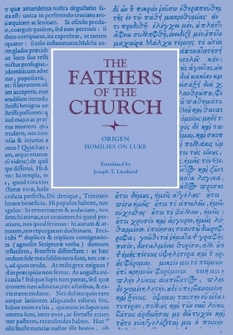Origen (ca. 185–ca. 254) is often remembered today as the great biblical allegorist. In my seminary years, I was told to avoid him because he was loose with the Bible. And yet Origen remains one of the most influential theologians on the question of how to interpret Scripture. What should a Bible student make of Origen today?
It’s fair to say that Origen prioritized the spiritual reading of Scripture over the literal. When he ran into passages that seemed fanciful to him if read literally, he argued that they were given so that we might search out the “mystical truths” indicated by them.1
For example, he found it difficult to swallow the notion that God planted “a visible and palpable tree of wood” in the garden and that “anyone who ate of this tree with bodily teeth would gain life.”2 The idea that a tree that held such spiritual significance—indeed, spiritual life—would be physical struck him as preposterous.
Origen did value much of the literal teaching of Scripture, especially the moral commandments and also much in the historical accounts. Still, he elevated the spiritual sense higher than the literal. He did this partly because he insisted that the Holy Spirit placed something in these accounts specifically for later Christians.
He also did it to resist certain forms of the “literal” sense, highlighting three groups that read the Bible in flawed ways: Jews who denied prophetic fulfillment in Christ, heretics who read the law as referring to an evil creator from whom the Savior frees us, and those Christians who themselves believed erroneous views about God.
To oppose these misreadings, Origen argued that the Bible must be read not as a human document but as a document “written under the inspiration of the Holy Spirit” and in keeping with “that rule and discipline delivered by Jesus Christ to the apostles.”3 He thus contended that the one who reads the Scriptures “reverently, believing them to be divine writings, must exercise great care.”4
Origen especially worried that people would miss how the Scripture finds fulfillment in Christ. In fact, Gerald McDermott says that his emphasis on the spiritual sense with its focus on Christ was “perhaps Origen’s greatest mark on the history of Christianity,” for he aimed “to discern in the Old Testament the sense that the gospel gave it.”5
Ultimately, Origen oriented all Scripture around its revelation of God for us, for we can reach the “perfection of knowledge” only as we receive “divine wisdom”—and the primary knowledge in Scripture is “chiefly the doctrine about God, that is, about the Father, Son and Holy Spirit.”6
And this insight perhaps helps us recognize something important about biblical interpretation. Bible study should not lose focus on God. Though Origen was only loosely tied to the literal sense, he was deeply christological and theological in his reading of Scripture. And this contrasts with some of the loose interpretations in some pulpits and small-group Bible studies today.
While Origen ran in a christological direction, many modern trajectories run in anthropological directions, always bringing the text back to me. Although we are certainly meant to apply Scripture to our lives, the Bible first and foremost reveals the grand majesty of the triune God and his work of grace for sinners in Christ. The Bible calls us to look, then to see, then to worship.
While resisting Origen’s allegorical excesses, we can appreciate why he rejected some literal forms of interpretation as practiced in his day (which essentially denied the truth about Christ), recognize that he championed serious study of the biblical text, and agree with him that Bible reading should focus our hearts on God and especially on Christ. We won’t err if we follow Origen’s principles of seeing the Bible as divine wisdom and reading Scripture with “great care.”

***
This article was originally published in the July/August 2022 issue of Bible Study Magazine. Slight adjustments, such as title and subheadings, may be the addition of an editor.
Related articles
- Why is Interpreting the Bible Sometimes Difficult? 4 Reasons
- 29 Bible Study Tools for Reading the Bible More Effectively
Related resources
Christian Apologetics Past and Present: A Primary Source Reader: Volume 1, To 1500
Regular price: $26.99
- Origen, On First Principles, trans. G. W. Butterworth (Gloucester, MA: Peter Smith, 1973), 289.
- Origen, On First Principles, 288.
- Origen, On First Principles, 272.
- Origen, On First Principles, 297.
- Gerald R. McDermott, The Great Theologians: A Brief Guide (Downers Grove, IL: IVP Academic, 2010), 21.
- Origen, On First Principles, 283.






